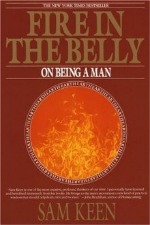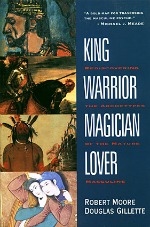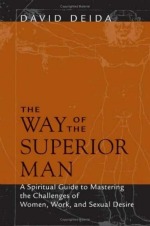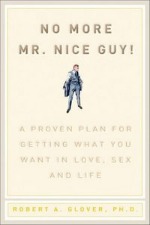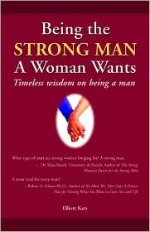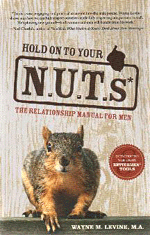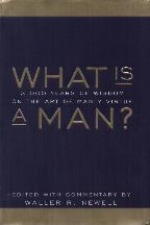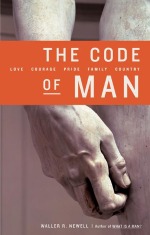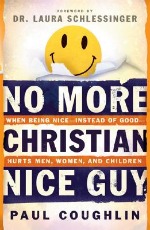
This post from Daniel Goleman at his Psychology Today blog, The Brain and Emotional Intelligence, is useful, if for no other reason, because it distinguishes between emotional empathy (what women excel at, and which men are seen not to possess) and action empathy (where men excel, after registering the affective aspect) - too often men are seen not to possess empathy when in reality there is only a difference in how it is expressed.
Here's where women differ form men. If the other person is upset, or the emotions are disturbing, women's brains tend to stay with those feelings. But men's brains do something else: they sense the feelings for a moment, then tune out of the emotions and switch to other brain areas that try to solve the problem that's creating the disturbance.Goleman uses different terms and doesn't name the male performance of empathy as action empathy, but that is the proper term as offered by Dr. Ron Levant. More than likely, this is a learned behavior in young boys who are taught that feelings are "girlie," but doing something to fix the problem is "manly." There is probably some hard-wiring around this too, in that men served to protect the group evolutionarily - so acting takes precedence over feeling.
But, as I often suggest, we are not bound by biology - learning and experience re-wires the brain.
Are Women More Emotionally Intelligent Than Men?Yes, and Yes and No.
Emotional intelligence has four parts: self-awareness, managing our emotions, empathy, and social skill. There are many tests of emotional intelligence, and most seem to show that women tend to have an edge over men when it comes to these basic skills for a happy and successful life. That edge may matter more than ever in the workplace, as more companies are starting to recognize the advantages of high EI when it comes to positions like sales, teams, and leadership.
On the other hand, it's not that simple. For instance, some measures suggest women are on average better than men at some forms of empathy, and men do better than women when it comes to managing distressing emotions. Whenever you talk about such gender differences in behavior, your are referring to two different Bell Curves, one for men and one for women, that largely overlap. What this means is that any given man might be as good or better as any woman at empathy, and a woman as good as or better than a specific man at handling upsets.
Let's look at empathy. There are three kinds: cognitive empathy, being able to know how the other person sees things; emotional empathy, feeling what the other person feels; and empathic concern, or sympathy -being ready to help someone in need.
Women tend to be better at emotional empathy than men, in general. This kind of empathy fosters rapport and chemistry. People who excel in emotional empathy make good counselors, teachers, and group leaders because of this ability to sense in the moment how others are reacting.
Neuroscientists tell us one key to empathy is a brain region called the insula, which senses signals from our whole body. When we're empathizing with someone, our brain mimics what that person feels, and the insula reads that pattern and tells us what that feeling is.
Here's where women differ form men. If the other person is upset, or the emotions are disturbing, women's brains tend to stay with those feelings. But men's brains do something else: they sense the feelings for a moment, then tune out of the emotions and switch to other brain areas that try to solve the problem that's creating the disturbance.
Thus women's complaint that men are tuned out emotionally, and men's that women are too emotional - it's a brain difference.
Neither is better - both have advantages. The male tune-out works well when there's a need to insulate yourself against distress so you can stay calm while others around you are falling apart - and focus on finding a solution to an urgent problem. And the female tendency to stay tuned in helps enormously to nurture and support others in emotional trying circumstances. It's part of the "tend-and-befriend" response to stress.
There's another way of looking at male-female differences in EI: Simon Baron-Cohen at Cambridge University, says that there's an extreme "female brain" which is high in emotional empathy -- but not so good at systems analysis. By contrast, the extreme "male brain" excels in systems thinking and is poor at emotional empathy (he does not mean that all men have the "male brain", nor all women the "female brain" of course; many women are skilled at systems thinking, and many men at emotional empathy).
Psychologist Ruth Malloy at the HayGroup Boston studies excellence in leaders. She finds when you only look at the stars -- leaders in the top ten percent of business performance -- gender differences in emotional intelligence abilities wash out: The men are as good as the women, the women as good as the men, across the board.
That echoes a discovery by scientists who study primates. When a chimp sees another chimp who is upset, say from an injury, she mimics the distress, a way of showing empathy. Some chimps will then go over and give some solace to the upset chimp, for example, stroking the other to help it calm down. Female chimps do this more often than male chimps do - with one intriguing exception: The alpha males, the troupe leaders, give solace even more often than do female chimps. In nature's design, leaders, it seems, need a large dose of empathic concern.





 Fifty years ago, in the same
Fifty years ago, in the same 




